Mediterranean countries take on archaeology project off Tunisian coast: Algeria, Croatia, Egypt, France, Italy, Morocco, Spain and Tunisia are working together on an underwater archaeological expedition, researching the Skerki Bank region off the Sicily and Tunisian coasts.
The Alfred Merlin French research vessel who highly sophisticated boat designed for the French Ministry of Culture and especially for underwater archaeology missions, with Its equipment and underwater civil drones for research is currently at Mediterranean waters.
According to the news of Rina Bassist from al-monitor.com; On Aug. 24, the Alfred Merlin departed from Trapani in Italy to the northern edge of the Skerki Bank on the Italian marine continental shelf. On board are a dozen marine archaeologists from several Mediterranean countries, including Alison Faynot who coordinates this mission on behalf of UNESCO. Algerian Nazim Bensalah, Egyptian Emad Khalil, Moroccan Azzedine Kara and Tunisian Wafa Ben Slimane are some of the other underwater archaeologists onboard.
Two days before sailing, UNESCO Chief Audrey Azoulay tweeted, "An underwater mission coordinated by UNESCO about to depart, in search of archaeological treasures off the Tunisian Italian coast." Her office told Al-Monitor that Azoulay and the ambassadors of the respective Mediterranean basin countries were all very excited over this pioneering project.
Speaking on the phone from the boat, Faynot explained that the mission at hand is unique. It is the first time that eight countries come together to preserve what they consider a common undersea cultural heritage. The Alfred Merlin is expected to stay in the Italian continental shelf zone one more day. Then it will continue to the Tunisian continental shelf not far away for another week of exploration.
"This mission constitutes an important step in a cooperation project that started already in 2018 when eight countries decided to protect together what they believe to be shared underwater cultural heritage in the Mediterranean. All eight are countries that have ratified the 2001 UNESCO convention on protecting underwater cultural heritage. Our mission now at sea is the practical embodiment of this project. Since 2018, we conducted meetings and discussions between underwater archaeology experts, especially in the last two years, including important decision-making. Now, with the boat, we reached the crucial step of underwater exploration, " Faynot told Al-Monitor.
The 2001 Convention on the Protection of Underwater Cultural Heritage unites countries committed to protecting, understanding and making this heritage better known to the public. UNESCO's website notes that "the oceans, seas, lakes and rivers hide from view and protect under the surface a priceless heritage, largely unknown and underestimated. No one can protect what is unknown."
Working to implement these principles is UNESCO’s Scientific and Technical Advisory Body (STAB) to the 2001 UNESCO Convention. It provides advice and assistance to the meetings of states parties on technical and scientific issues relating to underwater heritage. STAB has been active in Haiti, Guatemala, Madagascar, Bulgaria and Panama. The current mission is the first time that a whole group of countries join forces for a common underwater project.
"Usually, you have one country exploring an underwater site of a wrecked ship, or perhaps two countries, when a ship of one of them was lost in the other’s water. Then you have bilateral cooperation and joint exploration missions. Here, eight Mediterranean countries, all signatories to the convention, decided to work together. This mission brings together underwater archaeologists from Algeria, Croatia, Egypt, France, Italy, Morocco, Spain and Tunisia," said Faynot.
Source and the rest of the news: Rina Bassist - al-monitor.com


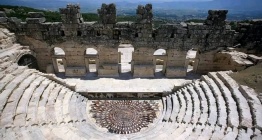
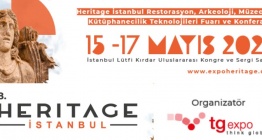
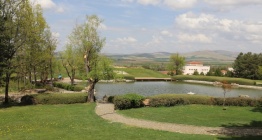
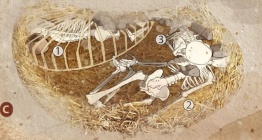

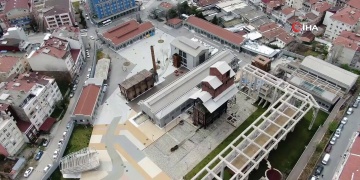 İklim Adaleti Perspektifinden Madencilik Çalıştayı 20 Nisan Cumartesi günü Kadıköy'de
İklim Adaleti Perspektifinden Madencilik Çalıştayı 20 Nisan Cumartesi günü Kadıköy'de  TÜROB Başkanı Müberra Eresin: Bu yıl otel doluluklarında artış olacağını umuyoruz
TÜROB Başkanı Müberra Eresin: Bu yıl otel doluluklarında artış olacağını umuyoruz  TÜRSAB Başkanı Firuz Bağlıkaya: Hedefimiz 60 milyar dolar gelir 60 milyon turist
TÜRSAB Başkanı Firuz Bağlıkaya: Hedefimiz 60 milyar dolar gelir 60 milyon turist 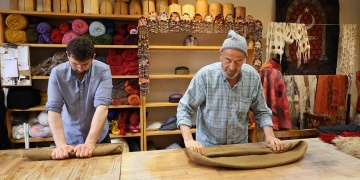 Antep İşi Nakışı, Keçe Yapımı ve Yoğurt UNESCO'ya aday üç kültürel mirasımız oldu
Antep İşi Nakışı, Keçe Yapımı ve Yoğurt UNESCO'ya aday üç kültürel mirasımız oldu 




